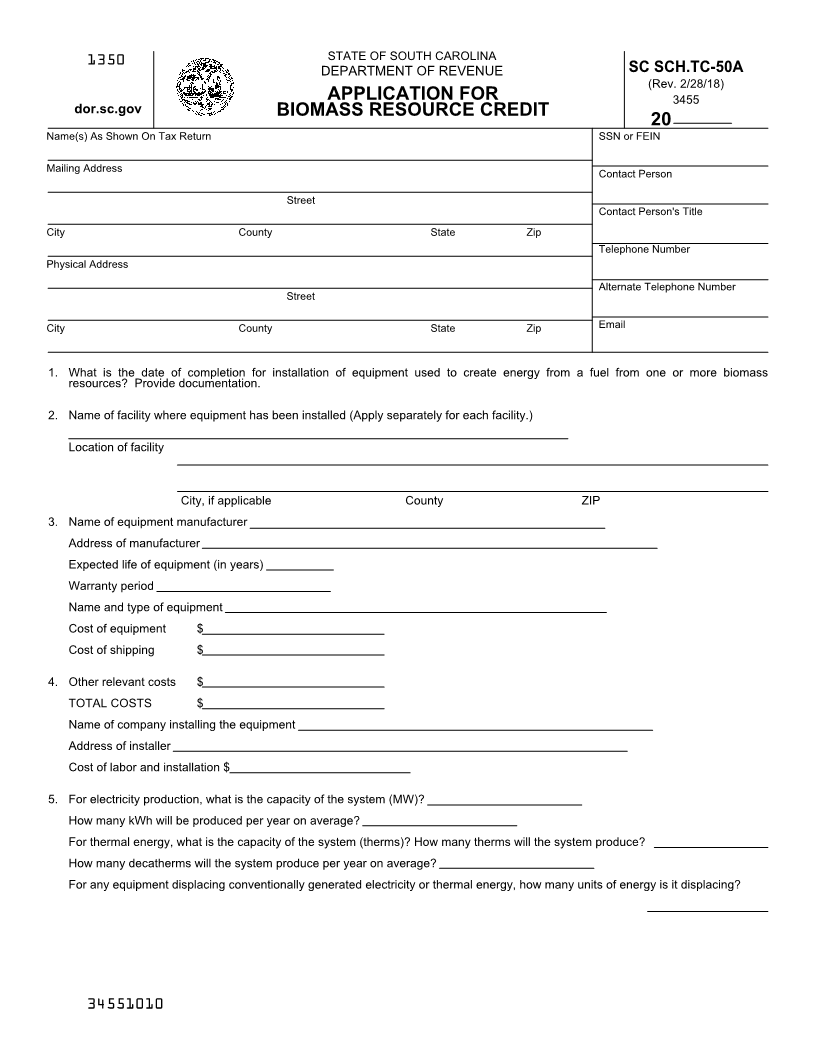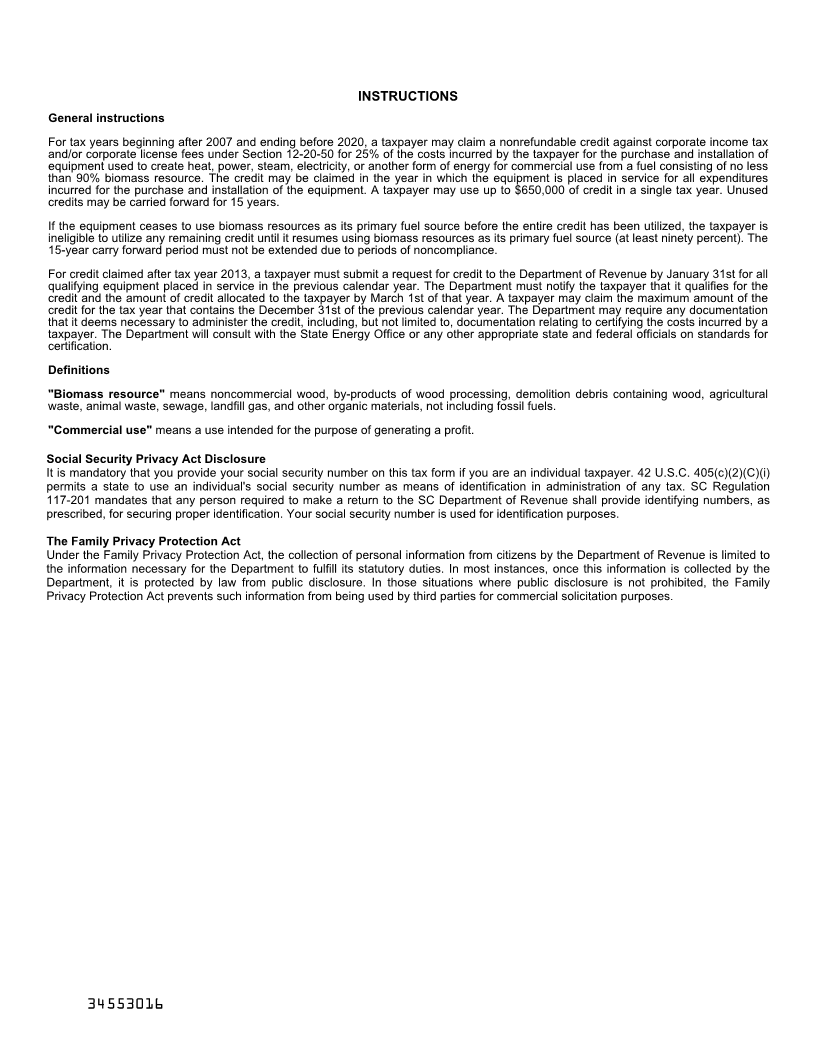
Enlarge image
1350 STATE OF SOUTH CAROLINA
DEPARTMENT OF REVENUE SC SCH.TC-50A
(Rev. 2/28/18)
APPLICATION FOR 3455
dor.sc.gov BIOMASS RESOURCE CREDIT
20
Name(s) As Shown On Tax Return SSN or FEIN
Mailing Address Contact Person
Street
Contact Person's Title
City County State Zip
Telephone Number
Physical Address
Alternate Telephone Number
Street
City County State Zip Email
1. What is the date of completion for installation of equipment used to create energy from a fuel from one or more biomass
resources? Provide documentation.
2. Name of facility where equipment has been installed (Apply separately for each facility.)
Location of facility
City, if applicable County ZIP
3. Name of equipment manufacturer
Address of manufacturer
Expected life of equipment (in years)
Warranty period
Name and type of equipment
Cost of equipment $
Cost of shipping $
4. Other relevant costs $
TOTAL COSTS $
Name of company installing the equipment
Address of installer
Cost of labor and installation $
5. For electricity production, what is the capacity of the system (MW)?
How many kWh will be produced per year on average?
For thermal energy, what is the capacity of the system (therms)? How many therms will the system produce?
How many decatherms will the system produce per year on average?
For any equipment displacing conventionally generated electricity or thermal energy, how many units of energy is it displacing?
34551010

